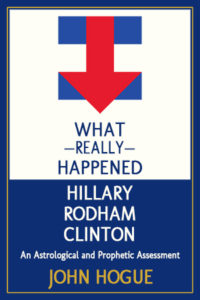
Click on the cover of this forthcoming book, read more about what it covers and get on the list to receive a personal note when it is soon published.
Friends,
Back in October 2002, Senator Hillary Clinton voted with the majority of fellow Democrats and Republican Senators to surrender sweeping congressional powers to President G.W. Bush for making war with Iraq. Voices of opposition were all but brushed off as anti-patriotic or just crazy. The motion was passed with little more than a mere two hours of debate upon the Senate floor, with only 13 senators dissenting.
Four years later, the senator most likely to become the next US president carries onto the campaign trail the burden of her vote. It hangs metaphorically speaking like the proverbial albatross around her neck. For those uninitiated in 19th-century romantic poetry, Samuel Taylor Coleridge’s epic in verse The Rhyme of the Ancient Sea Mariner tells the tale of an old salt who on senseless impulse took his crossbow and shot an albatross dead. The noble bird had tarried around the ship ever since it had broken out of polar ice on a sweet south wind towards warmer seas. The crew had believed the albatross was their lucky charm. The senseless murder of the albatross initiated a number of ill omens and fates that led to ship and crew becalmed and dying of thirst in the doldrums of the sea. For his evil act, the rotting body of the slain albatross was hung about the mariner’s neck. He was to carry the burden of his mistake that led in part to their tragedy.
Something stinks around the neck of Senator Hillary Clinton.
The easy breeze through the first months of her campaign to become the Democratic nominee for president now becalms after she shot her arrow of defiance against admitting mistakes. Wherever she goes to speak to the public in her “getting to know Hillary” town meetings around the country Senator Clinton is constantly asked about the political “albatross” hanging around her neck—voting in favor of going to war with Iraq.
The one who in 2002 voted Bush war powers is now playing the anti-war candidate for president and it has the danger of taking the air out of the sails of her political chances if she does not recognize and take responsibility for the incognizant crossbow shot of her pro-war ballot and the bad smell it leaves around her now.
Something is rotten in town hall meetings in the state of New Hampshire. When asked if she believes she made a mistake casting her vote, she shoots the blame at Bush. Moreover, when pressed she will brusquely volunteer that if you do not like the answer, she invites you to find another candidate.
In other words, she is saying a variation on, “Love me, love my dog. It is, “like Hillary, like her albatross.”
At the beginning of her trail to the White House, she is as unrepentant as Colleridge’s ancient sea mariner had been “at the beginning of his tale.”
She believed in Bush’s intelligence reports—blindly, some might add and with political mainstream calculation—when other voices in the political wilderness, such as Vermont Governor Howard Dean, and the former vice president, Al Gore, took the unpopular anti-war stand. She preferred to sail with the prevailing political wind even when those not in the wilderness, such as Senators Edward Kennedy and Howard Byrd looked at the president’s “intelligence” and found it lacking. Solid intelligence or UN inspectors did not back up stories of Iraq having weapons of mass destruction and Saddam Hussein’s imminent threat of using such on the United States.
The question I still have not heard presented to the Senator is how she could believe in President Bush’s intelligence when United Nations inspectors led by Hans Blix raised many doubts in world capitals across the world that there were clear grounds for war. Why support a rush to war when compelling signs and worldwide pressure supported the US demanding a harsher regimen of weapons inspections that would put dictator Saddam Hussein of Iraq deeper inside his box of containment than ever before?
How could the mistake of her judgment be solely the president’s fault when 15 Senators saw his argument’s flaws, and voted against it?
Paul Krugman, Op Ed columnist for the New York Times in his 8 December article They Told You So, listed a set of quotes from Democrats back in the autumn of 2002 that either voted against or were against the granting of Bush war powers. She heard these points of view then. Now they appear like a noisome garland of fulfilled prophecy hanging from the neck of one who sticks that politically formidable neck out on the campaign trail.
It was clear to some around Clinton, back then, that Bush had at best a vague idea of what he would do with Iraq after Saddam’s regime crumbled and the US occupied and effectively owned that broken country:
“I have no doubt that our military would decisively defeat Iraq’s forces and remove Saddam. But like the proverbial dog chasing the car down the road, we must consider what we would do after we caught it.”
Representative Ike Skelton, September 2002
“The outcome after the conflict is actually going to be the hardest part, and it is far less certain.”
Representative John Spratt, October 2002
“When we go in, the occupation, which is now being called the liberation, could be interminable and the amount of money it costs could be unlimited.”
Nancy Pelosi,
(now Speaker of the House) in October 2003
In addition, even close associates who served her husband as president obviously had her ear. I am certain she heard something similar to these quotes in private:
“I am deeply concerned that the course of action that we are presently embarking upon with respect to Iraq has the potential to seriously damage our ability to win the war against terrorism and to weaken [America’s] ability to lead the world in this new century.”
Al Gore, September 2002
Fellow senators, close colleagues in the Senate chambers, made clear their misgivings about Bush’s “choose a reason, any reason” arguments to the Congress:
“I am increasingly troubled by the seemingly shifting justifications for an invasion at this time. …When the administration moves back and forth from one argument to another, I think it undercuts the credibility of the case and the belief in its urgency. I believe that this practice of shifting justifications has much to do with the troubling phenomenon of many Americans questioning the administration’s motives.”
Senator Russ Feingold, October 2002
If she did not hear any of this, she could not have missed the strident hectoring of a certain former Governor of Vermont running for president at the time of the vote:
“I firmly believe that the president is focusing our diplomats, our military, our intelligence agencies, and even our people on the wrong war, at the wrong time. …Iraq is a divided country, with Sunni, Shia, and Kurdish factions that share both bitter rivalries and access to large quantities of arms.”
Howard Dean, then candidate for president, (now, Chairman of the Democratic National Committee) making a reprise of his views from the autumn of 2002 in February 2003, a month before the war.
Last but not least, take note of words coming to us from the autumn of 2002 out of the mouth of a dark horse making a run for president in 2008:
“I don’t oppose all wars. What I am opposed to is a dumb war. What I am opposed to is a rash war. What I am opposed to is the cynical attempt by Richard Perle and Paul Wolfowitz and other armchair, weekend warriors in this administration to shove their own ideological agendas down our throats, irrespective of the costs in lives lost and in hardships borne.”
The last quote came from Barack Obama, in September 2002, when he was a state senator of Illinois. He is now the junior Senator representing Illinois at Washington D.C. He is the political rock star who at the moment is the man most capable of taking the Democratic Party’s nomination for president in 2008 away from Senator H. Clinton
My “oracle” has never been surer—and constant for so long a time, since 1998—that Hillary Clinton is destined to become president of the United States in 2008. If ever something might harpy over and clutch that destiny from her it is her prideful inability to publicly admit her mistake in judgment voting for the war in 2002. She can blame the president for his faults but not at the preclusion of an encounter with her own. Eventually she will have to admit her mistake. She will most likely do it when it is both harmless and politically charming to do so, but that is not any time soon. Competitors in the race to the White House, such as Barak Obama will not let it go, come primary time. In The Rhyme of the Ancient Sea Mariner, honest contrition broke the string of the albatross tied around the mariner’s neck and set him free from shipwreck.
John Hogue
(03 March 2007)

Click on this link and find out why my access to this book template on Amazon was blocked and at the time of this writing, still blocked by bots.
3 Trackbacks
[…] economy Obama economic policy Obama economic advisors Obama economic record Obama the demogogue Obama Hillary Clinton Obama […]
[…] nearly a year before Obama and Clinton battled for the Democratic nomination in 2008. (Click on Hillary Clinton to see how my Oracle isolated the one weak link messing up her destiny in 2008 and click on Barack […]
[…] Hillary Clinton’s Albatross (02 March 2007) […]